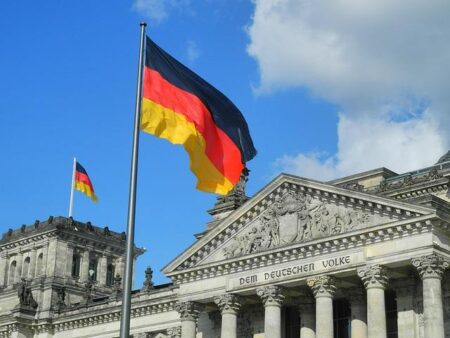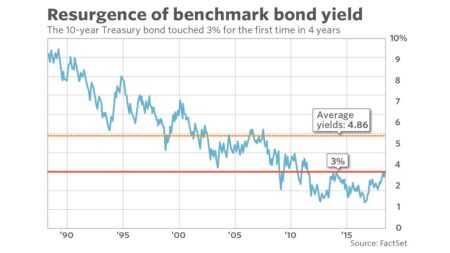Subscribe to Updates
Get the latest creative news from FooBar about art, design and business.
Browsing: government spending
UK Shadow Chancellor Rachel Reeves is poised to announce £2 billion in civil service spending cuts as part of the Labour Party’s economic strategy. The move aims to streamline government operations and address budget deficits amid rising public demand for fiscal accountability.
Germany’s recent surge in spending, aimed at bolstering its economy post-pandemic, is raising concerns within the EU. Critics warn that this financial splurge could disrupt budgetary stability across member states, triggering anxiety about fiscal discipline in the bloc.
Germany’s parliament has passed a landmark package aimed at significantly increasing defense spending. This move is intended to bolster military capabilities and respond to shifting security dynamics in Europe, reflecting a commitment to NATO obligations.
Germany’s Friedrich Merz has achieved a significant breakthrough in securing approval for a massive spending plan aimed at stimulating economic growth. The initiative, seen as a pivotal move for the economy, is set to reshape fiscal policy and address pressing challenges.
Japan’s Prime Minister faces mounting pressure to clarify the nation’s controversial budget proposal amid concerns regarding military spending and social welfare cuts. Critics demand transparency as the government balances defense priorities with public needs.
The German Parliament is currently engaged in heated debates over proposed reforms to the country’s debt brake, a fiscal rule aimed at limiting government borrowing. As economic pressures mount, lawmakers are grappling with balancing fiscal responsibility and urgent public spending needs.
Germany, facing an economic downturn, is set to relax its strict debt brake rules, potentially allowing for increased government spending. This shift aims to stimulate growth and address pressing social and infrastructure needs amidst rising geopolitical tensions.
Germany’s finance minister, Christian Merz, faces a critical deadline to unveil a groundbreaking spending plan aimed at revitalizing the nation’s economy. With just two weeks to act, the implications of his decisions could reshape fiscal policy for years to come.
Germany’s recent shift in fiscal policy marks a significant turnaround, as increased spending aims to bolster its economy and strengthen its role within the European Union. This move positions Germany back at the forefront of European decision-making.
The Bundesbank has acknowledged that increased German spending is justified in the current economic climate, yet it cautions that such measures alone will not resolve deeper structural issues. Experts urge a balanced approach to ensure sustainable growth.
Germany’s likely next government is advocating for increased defense spending amid growing concerns about the United States’ commitment to European security. This shift reflects a reassessment of defense priorities in response to global geopolitical tensions.
Germany’s recent fiscal stimulus, termed a “spending bazooka,” is reshaping Eurozone dynamics, propelling the euro and increasing borrowing costs. This shift underscores the impact of national policies on broader European economic stability and inflation concerns.
Germany’s recent spending plans have sparked concerns in global markets, leading to a decline in the 10-year Treasury note and the dollar. Analysts fear increased fiscal stimulus in Europe could draw investment away from U.S. assets, heightening volatility.
Amidst economic uncertainties, Germany’s Finance Minister Christian Merz has initiated a fiscal awakening aimed at revitalizing the nation’s economy. His strategic policies may steer Germany back on track, fostering growth and stability in the Eurozone.
India’s GDP growth is projected to have rebounded in the October-December quarter, fueled by increased government spending, according to a Reuters poll. Analysts expect this fiscal boost to enhance economic resilience amid global challenges.


















